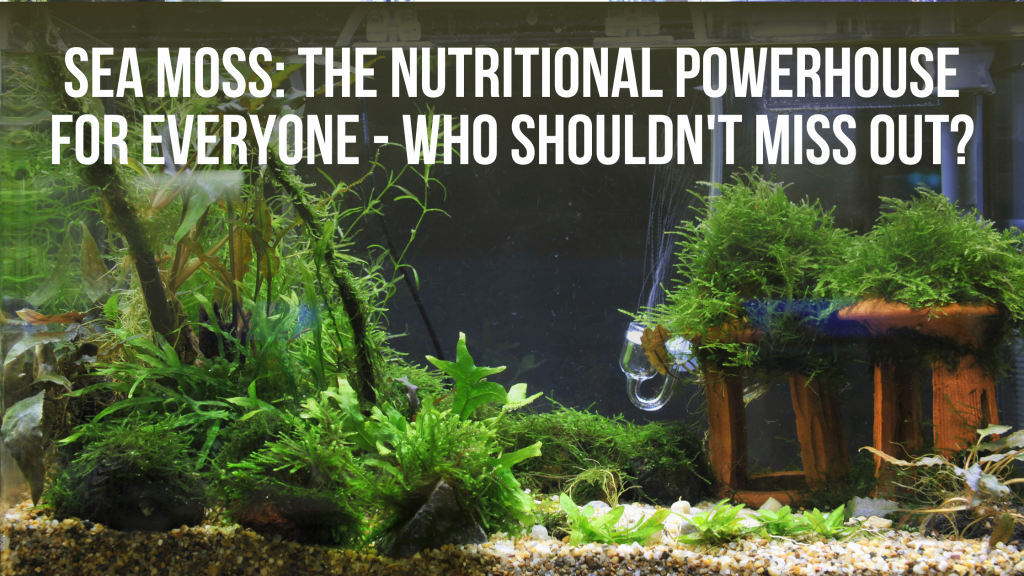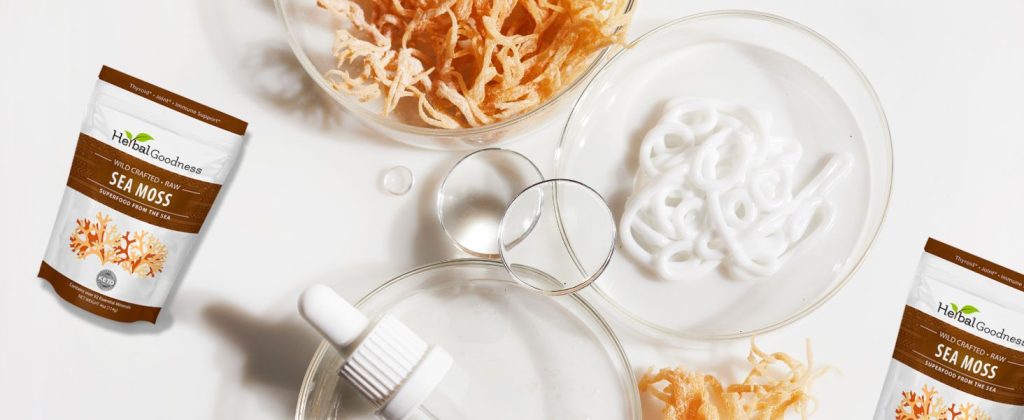Sea Moss: The Nutritional Powerhouse for Everyone – Who Shouldn’t Miss Out?

Sea moss, scientifically known as Chondrus crispus, is a type of algae that is found along the rocky shores of the Atlantic coastlines of North America, Europe, and the Caribbean. It has been used for centuries in various cultures for its potential health benefits. Also referred to as Irish moss, it is rich in essential minerals, vitamins, and antioxidants, making it a popular ingredient in traditional medicine and culinary applications.
Sea moss is highly regarded for its nutritional profile, as it contains a wide range of minerals, including iodine, calcium, magnesium, potassium, and iron. These minerals are essential for maintaining optimal bodily functions and promoting overall health. Additionally, sea moss is a source of vitamins A, E, K, and B-complex vitamins, which play vital roles in supporting the immune system, promoting healthy skin, and aiding in the metabolism of carbohydrates, proteins, and fats.
One of the key components of sea moss is carrageenan, a type of polysaccharide with potential health benefits. Carrageenan is known for its ability to provide a soothing effect on mucous membranes, which makes sea moss beneficial for supporting respiratory health and digestive function. It may help alleviate symptoms of conditions like cough, sore throat, and gastrointestinal issues.
Sea moss is also believed to possess anti-inflammatory and antioxidant properties. These properties can help combat oxidative stress, reduce inflammation in the body, and support overall cellular health. Antioxidants play a crucial role in neutralizing free radicals, which can damage cells and contribute to chronic diseases.
Who should take sea moss? While sea moss can be a valuable addition to a balanced diet for many individuals, there are specific groups of people who may benefit more from its consumption. These include:
- Individuals with mineral deficiencies: Sea moss is an excellent natural source of various minerals, especially iodine, which is crucial for proper thyroid function. People who are deficient in minerals or have conditions that affect mineral absorption may find sea moss helpful in replenishing their mineral stores.
- Those with respiratory issues: Due to its soothing properties on mucous membranes, sea moss may be beneficial for individuals experiencing respiratory ailments like cough, congestion, or sore throat. It is often used as a natural remedy for respiratory conditions.
- Digestive health: Sea moss has been used traditionally to support healthy digestion and soothe gastrointestinal discomfort. Its carrageenan content may help promote a healthy gut lining and alleviate symptoms of digestive disorders.
- Vegans and vegetarians: Sea moss is a popular ingredient among plant-based eaters as it provides essential minerals, vitamins, and antioxidants that may be lacking in a vegan or vegetarian diet.
- Skin health enthusiasts: The vitamins and minerals present in sea moss, along with its potential anti-inflammatory properties, make it an appealing ingredient in skincare products. It may help support healthy skin by promoting collagen production and reducing inflammation.
It’s important to note that while sea moss has a long history of traditional use and anecdotal evidence supporting its benefits, scientific research on its specific effects is still limited. As with any supplement or dietary change, it’s recommended to consult with a healthcare professional before adding sea moss or any other new supplement to your routine, especially if you have pre-existing health conditions or are taking medications.



